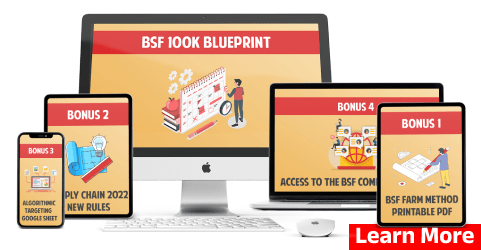
A little over ten years ago, technology posed the greatest obstacle for eCommerce brands. The necessary infrastructure was lacking, requiring brands to construct everything from the ground up. Consequently, managing marketing efforts, automating basic marketing tasks, and enhancing conversion rates proved to be incredibly challenging.
The launch of the Shopify App Store had a transformative effect on the eCommerce landscape, particularly due to the inclusion of apps or plugins, which were the primary advantage of platforms such as Shopify and BigCommerce. This development marked a pivotal moment in the history of eCommerce.
Companies began to release eCommerce marketing tools that were compatible with these platforms and provided all of the necessary features for an eCommerce brand.
By utilizing these tools, the most successful brands were able to transform into nationally recognized brands. They achieved this by automating marketing activities, boosting revenue, and swiftly and inexpensively introducing new marketing channels.
In this post, we will discuss all the essential eCommerce marketing tools required to expand your brand.
eCommerce Platforms
When it comes to running an eCommerce business, the initial and most important step is selecting a suitable platform to operate the store. Currently, two major eCommerce platforms, namely Shopify and BigCommerce, hold the majority market share. Additionally, there are some lesser-known alternatives available such as WooCommerce, Magento, or utilizing a shopping cart on a WordPress site.
Shopify
There is no doubt that Shopify is the biggest eCommerce platform at present and holds a dominant position in the eCommerce industry. It is widely utilized by approximately 80% of eCommerce stores, and this preference is justified.
The Shopify App Store, which has a vast selection of apps and plugins, is suitable for both smaller and larger stores. Additionally, it offers excellent infrastructure and support. You can find over 4,000 apps in the Shopify App Store to meet your needs.
BigCommerce
BigCommerce, the second-largest platform, is highly robust with numerous advantages. Unlike Shopify, BigCommerce offers a more cost-effective option as it does not impose commission fees on every purchase. Additionally, BigCommerce surpasses Shopify in terms of native features and security.
Magento
If you are tech-savvy and able to set up everything yourself, Magento is the most affordable option despite the potential high cost if you lack the necessary infrastructure. This open-source software allows complete customization of your store according to your own standards.
WooCommerce
WooCommerce, a plugin for WordPress, is an open-source eCommerce tool that allows WordPress sites to effortlessly set up an eCommerce store and sell physical products. Moreover, WooCommerce offers additional functionalities to WordPress shops through its own collection of apps.
Digital Marketing Tools
Loomly
Loomly is a platform that describes itself as a “brand success platform” and is suitable for smaller social teams seeking to arrange and cooperate on content.
Scheduling and brainstorming content become effortless due to the presence of built-in calendars, deadlines, and workflows. Additionally, Loomly offers the advantage of providing users with fresh content ideas curated from trending topics and Twitter conversations.
The interface of the platform is simple and easy to use, making it accessible for users who are not very knowledgeable about technology. Additionally, the platform is affordable, which is attractive for solo businesses and smaller agencies that want to manage their social presence.
Audiense
The significance of social listening for recognizing trends and potential customers has been discussed repeatedly.
Tools like Audiense take listening to the next level by helping companies both identify and segment their social media audiences. Doing so makes it easier to run laser-targeted ad campaigns and likewise dive deeper into your customer personas. Digging into demographics, personality straights and beyond, you’d be surprised at what you can learn from social alone.
The main focus of Audiense’s platform is Twitter, which is beneficial for B2B brands seeking new customers and B2C companies aiming to gain insights into their target audience.
HubSpot
HubSpot, a renowned company for its CRM and inbound marketing software, has recently introduced an email marketing product called HubSpot Email Marketing. This product is characterized by its user-friendly interface, excellent deliverability, and seamless integration with all other HubSpot products including the complimentary CRM and various popular marketing tools. The tool offers a Free Plan that allows users to send up to 2,000 emails per month and provides contact lists, a simple email builder with drag-and-drop functionality, and pre-designed templates to facilitate a quick start.
What’s great about it is that HubSpot simplifies matters by integrating different tools. Among the many integrations is Sprout Social. With Sprout’s care features, you have the ability to generate and assign tasks for your customer care team. By linking Sprout and HubSpot, your team can efficiently handle, monitor, oversee, and resolve issues all within the app.
SendGrid
SendGrid provides a comprehensive range of email marketing services that are user-friendly for both beginners and experienced email users.
The platform provides flexible design options through visual, drag-and-drop editing, coding, or a combination of both. It also includes in-depth deliverability and performance analytics, which provide marketers with information about the performance of their messages and areas for improvement.
We are aware that there are numerous email marketing solutions available, too many to keep track of. Nevertheless, SendGrid has a major advantage with its forever-free plan designed for emerging businesses and flexible pricing that can adapt to your list’s growth.
lemlist
Lemlist stands out from our other email marketing tools due to its primary focus on deliverability. It does an excellent job of optimizing your current campaigns by highlighting the optimal times and frequency for sending messages to increase opens and clicks.
Lemlist can provide valuable insights on how to nurture your list instead of doubting your marketing efforts.
In addition, there are personalization tools available to make your outreach emails appear less like spam, as well as follow-up email sequences to increase the likelihood of receiving responses from cold prospects.
Moosend
Moosend, which is one of our digital marketing tools, stands out as both user-friendly and affordable. It provides a remarkably sturdy email solution that is ideal for those who are starting to create their subscriber list.
The platform includes codeless campaigns, easy automations, and readable reporting. Paid users can also utilize landing page features like mobile popups and countdown timers.
Ahrefs
When it comes to brainstorming keyword ideas and opportunities to rank, Ahrefs is considered the gold standard.
By thinking in a systematic manner, rephrase the given text while retaining the original meaning. Avoid adding or removing any information. The site explorer of the platform provides the ability to assess the primary organic keywords for any URL, along with estimating the amount of traffic a competitor receives for a specific search term. Additionally, it facilitates the identification of a website’s most successful content and sources of backlinks.
Ahrefs is an outstanding tool that can be used not just for competitive analysis but also for ensuring that your current content meets search standards.
Clearscope
If you’re looking to take advantage of keyword opportunities and improve your current content, Clearscope can help with that.
The platform offers a comprehensive editor that suggests keywords, headers, and readability, making it beneficial for content writing. It assists in creating high-ranking and well-balanced blog posts, whether it involves writing from scratch or reworking existing content.
Clearscope covers every aspect of search optimization, whether you’re starting from scratch with a content strategy or updating your current blogs.
SEMrush
SEMrush, another essential SEO tool, enables you to monitor the ranking of your main keywords and also discover new terms to target.
The breakdown provided by the tool of keyword ideas, difficulty, and variations is excellent for generating content ideas and determining search intent as well.
Unbounce
Unbounce is an incredible tool that can be used to rapidly create, adjust, and publish new landing pages for testing purposes. With its built-in A/B testing and variant analytics, it can provide direct answers on the effectiveness of different creatives, calls-to-action, and additional page elements.
Even if you lack design skills, you can start with Unbounce’s tested landing page templates and customize them to match your personal style. The platform’s analytics clearly indicate which variations of landing pages are the most successful for you.




